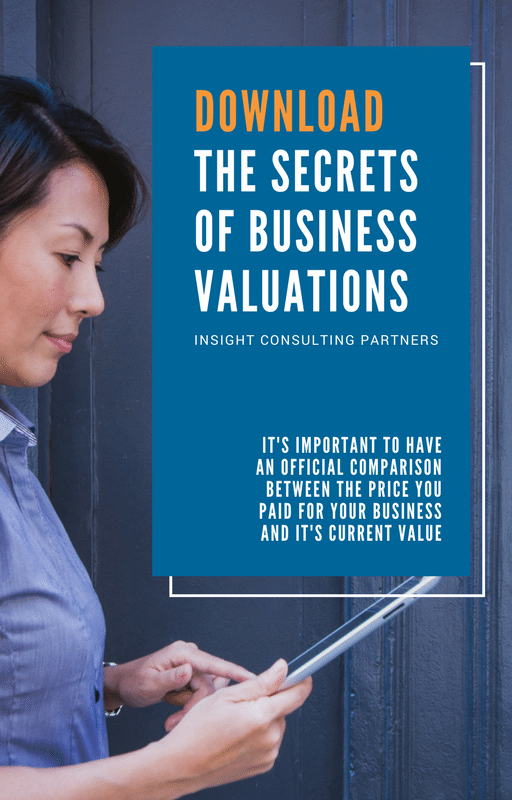Valuing and selling your business is a culmination of years of blood, sweat, and tears. It’s the moment you reap the rewards of your entrepreneurial spirit. But before the champagne corks start popping, there’s a crucial step: determining your business’s value. Get it wrong, and you could be leaving significant money on the table.
Here’s the harsh reality – many business owners make critical mistakes during the valuation process, unknowingly undermining their company’s worth. Let’s delve into the top 5 pitfalls to avoid and explore the path to a truly lucrative exit strategy.
Mistake #1: Skipping the Digital Transformation
Imagine a bustling restaurant in today’s world without an online ordering system or a social media presence. Yikes! In our digital age, consumers expect seamless online experiences – user-friendly websites, efficient customer relationship management (CRM) systems, and mobile responsiveness are no longer optional. Falling behind the digital curve can translate to lost revenue, a tarnished brand image, and ultimately, a lower valuation.
Solution: Embrace the digital revolution! Invest in the right technology and support to streamline operations, enhance customer interactions, and future-proof your business. A robust website not only attracts new customers but also showcases your company’s commitment to innovation, a factor that can significantly impact valuation.
Mistake #2: Valuing while Relying on Outdated Financials
A business valuation is a snapshot of your company’s health at a specific point in time. Think of it like a photograph capturing your business’s financial performance. Using outdated financial statements paints an inaccurate picture and misrepresents your true value to potential buyers. Imagine trying to sell a house with photos from a decade ago – it wouldn’t reflect the current state of the property, right? The same principle applies to business valuations.
Solution: Ensure your financial statements are up-to-date, accurate, and meticulously maintained. Clean and transparent financial records not only inspire confidence in potential buyers but also provide a solid foundation for a fair and accurate valuation.
Mistake #3: The Rule of Thumb
Industry benchmarks like “8 times EBITDA” (Earnings Before Interest, Taxes, Depreciation, and Amortization) might seem like a convenient shortcut. However, relying solely on these “rules of thumb” is a recipe for disaster. Markets are constantly evolving, and valuation multiples change accordingly. Additionally, these metrics only provide a starting point and need to be adjusted to reflect your company’s unique performance compared to competitors. For instance, a company with a revolutionary new product might command a higher valuation multiple than an industry average due to its future growth potential.
Solution: Don’t fall prey to the simplicity of “rules of thumb.” Engage a qualified professional who can conduct a comprehensive valuation considering your industry, current market trends, your company’s financial health, and its future growth potential. A skilled advisor will ensure your business is valued based on its true potential, not generic industry averages.
Mistake #4: Overselling
Building a strong brand involves showcasing your product or service’s value proposition. However, there’s a fine line between confident marketing and making unrealistic promises. Exaggerating your product’s capabilities or promising results you can’t deliver will ultimately erode trust with potential buyers.
Solution: Avoid overselling by thoroughly understanding your product or service’s capabilities through rigorous testing and data analysis. Focus on honest and transparent marketing that builds trust with potential buyers and fosters long-term customer loyalty. Remember, a brand built on a foundation of truth resonates more deeply with consumers and commands a premium valuation.
Mistake #5: Going Solo
Selling a business involves complex legal, financial, and strategic considerations. Many business owners underestimate the value of an experienced advisor. The sales process can be a minefield, riddled with potential pitfalls. Trying to navigate it alone could lead to costly mistakes and missed opportunities.
Solution: Partner with a qualified advisor who can guide you through the entire sales process, from valuation to buyer identification and negotiation. A skilled advisor can help you:
- Prepare your business for sale: This includes developing a clear sales strategy, optimizing financial performance, and creating marketing materials that showcase your company’s value.
- Identify and qualify potential buyers: When valuing your advisor will leverage their network and expertise to find the right buyers who are willing to pay a premium for your business.
- Negotiate the best possible deal: An experienced valuing advisor will advocate for your best interests and ensure you receive a fair and favorable outcome in the sale.
If you have any questions contact our team via the contact page or at (08) 6118 7295
For tax implications and financial advice visit www.insightperth.com

